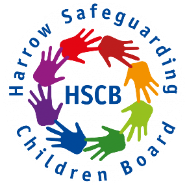Health
SAFER communication guidelines
These are guidelines for communications between health visitors and local authority childrens social care teams using the SAFER process when a child may be suffering or is likely to suffer significant harm. but the guidelines are useful for any professional to make sure of.
For the ideal A&E pathway for children up to 18 years presenting with behavioural, emotional, learning difficulties and mental health see here .
Abuse such as sexual exploitation, thrives in silence. The more we talk, discuss and question it, the less likely it is to continue. If every healthcare professional uses this tool, and applies the learning in their work we will be one step closer to ensuring that every young person who is being exploited gets the help they need.
Produced by Brook on behalf of the Department of Health. It is designed to equip all those working within health with the knowledge to understand, recognise and respond to CSE.
The tool is available to all NHS staff on the e-LfH platform but because we want as many healthcare professionals to be able to access it here: https://www.brook.org.uk/our-work/cse-e-learning-tool
This includes everyone from receptionists and healthcare assistants, to GPs, nurses, counsellors, therapists and consultants all of whom have a role to play in picking up on key warning signs.The tool takes approximately 40 minutes to complete and uses facts, scenarios, videos and assessments to highlight the warning signs and build knowledge and confidence in applying the appropriate safeguarding procedures. Additional reading on the Harrow reporting pathway, the s.a.f.e.g.u.a.r.d. tool, information on MASE and other CSE links ensure the reader understands CSE within the Harrow context.
As completion of the course is not monitored please ensure that your manager is informed when you have completed the E-learning as this information will be gathered by Harrow Safeguarding Children Board has a responsibility to collate those who are undertaking such learning.
nhs picYou have rights when making decisions and choices about your healthcare.
The Council for Disabled Children (CDC) at the National Children’s Bureau has launched a new website to inform children and young people of their right to high quality healthcare from the NHS.
Get your rights: everything you need to get the most out of the NHS
info 4 care kids
http://www.info4carekids.org.uk/index.aspx
If you are a looked-after child or young person, this website is designed to help you with information, advice and useful links to further resources. It is important that you know what care and support you can receive and what choices you have. The site also offers useful suggestions and advice to those looked-after young people who are preparing to live on their own
FGM films for healthcare professionals
The Department of Health has published a set of films about female genital mutilation (FGM) for healthcare professionals. Topics covered include: the impact of FGM on mental health; mandatory reporting; personal experiences of FGM and how healthcare professionals can support victims.
Further information: FGM resources for healthcare professionals
The National Childrens Bureau (NCB) has developed a free toolkit for school leaders wishing to assess and improve the support their school provides for childrens well being and mental health. The framework has four stages: deciding to act and identifying what is in place already; getting a shared understanding and commitment to change and development; building relationships and developing practices; implementation and evaluation.
Further information: A whole school framework for emotional well being and mental health: a self-assessment and improvement tool for school leaders (PDF)
The National Childrens Bureau (NCB) has developed a free toolkit for school leaders wishing to assess and improve the support their school provides for childrens well being and mental health. The framework has four stages: deciding to act and identifying what is in place already; getting a shared understanding and commitment to change and development; building relationships and developing practices; implementation and evaluation.
Further information: A whole school framework for emotional well being and mental health: a self-assessment and improvement tool for school leaders (PDF)
Ask About Asthma
There are over 240,000 children and young people with asthma in London. Over 4000 are admitted to hospital with asthma every year with 170 being severe enough to require intensive care. 12 children and young people die from asthma each year and most of these deaths are entirely preventable.
In September 2017, to coincide with the start of the new school year and the highest hospital admission rates for asthma (week 38), Healthy London Partnership and NHS England (London) launched a public awareness campaign called #AskAboutAsthma. The campaign aims to encourage small steps to help improve the quality of life for children and young people living with asthma in London. Below is an outline of the campaign aims and the ways that you can help.
The #AskAboutAsthma campaign aims for:
- Each child to have an asthma management plan
- Each child with asthma to be able to use their inhaler effectively
- Each child to have an annual asthma review
As part of the campaign, individuals are asked to make a My Asthma Pledge, to help support children and young people with asthma by describing their own or organisational contribution to improving asthma care. All pledges to support the campaign are visible on the My Asthma Pledge page and if you could tweet a photo of you/your organisations pledge using the hashtag; #AskAboutAsthma with our handle: @healthyLDN, that would be wonderful. Pledges can be to support improvement in asthma care or to reduce individual contribution to air pollution.

